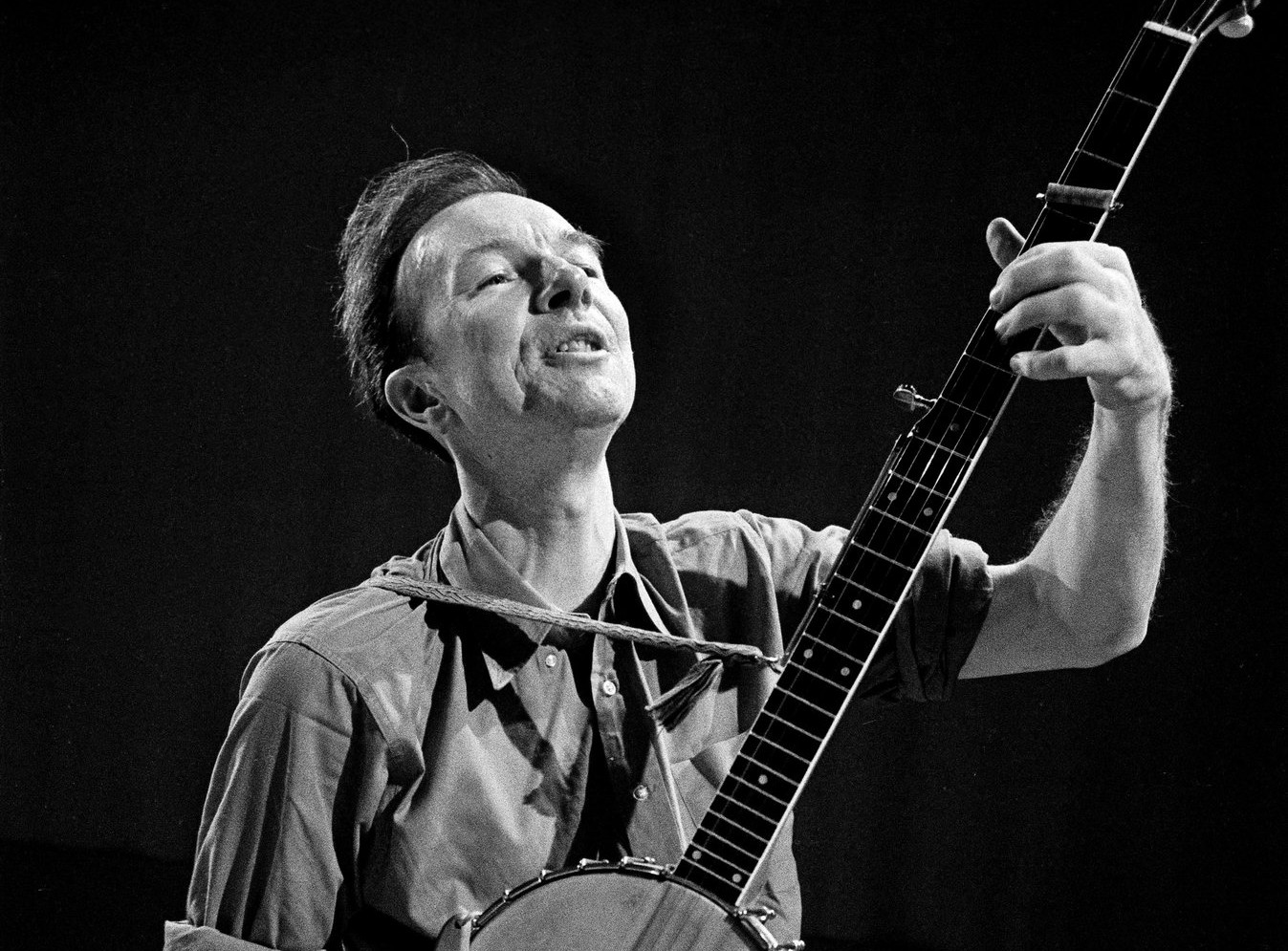Folk songs are usually far older than the singers we associate with them. Like all oral traditions, folk songs evolve over time, often incorporating bits and pieces of stories belonging to the men and women that sang them and adapted them over time. This Pete Seeger song, “Whiskey, Rye Whiskey” has deep roots in America’s South- stretching back before the Civil War…even back to Scotland!
Pete Seeger recorded his version of “Whiskey, Rye Whiskey” in 1954. Seeger, like so many other American singer-songwriters of the mid-20th century, borrowed music from the singers that preceded and inspired them. “Whiskey, Rye whiskey” was first recorded in 1926 by Fiddlin’ John Carson. While I could not find the 1926 recording to share here, its tone would almost assuredly have been less whimsical than Seeger’s- considering the fact that it was recorded during Prohibition! But the song was quite a bit older than Carson’s version, too.
“Cowboy Songs and Other Frontier Ballads” by John A. Lomax, is a compilation of traditional American folk songs from the frontier. The book was first published in 1910, and it was dedicated to Teddy Roosevelt. The dedication read:
“To: Mr. Theodore Roosevelt who while president was not too busy to turn aside- Cheerfully and Effectively- and aid workers in the field of American balladry, this volume is gratefully dedicated”
Teddy Roosevelt’s handwritten response was printed in the book after the dedication.
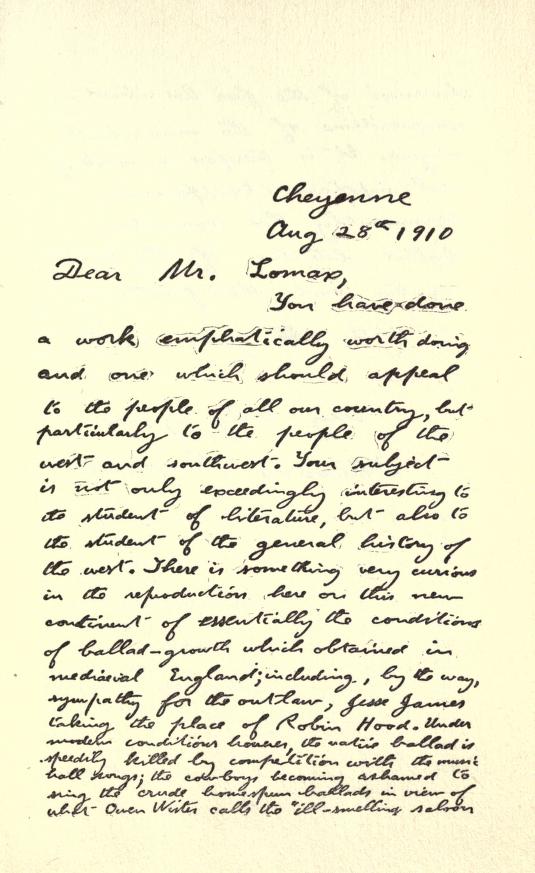
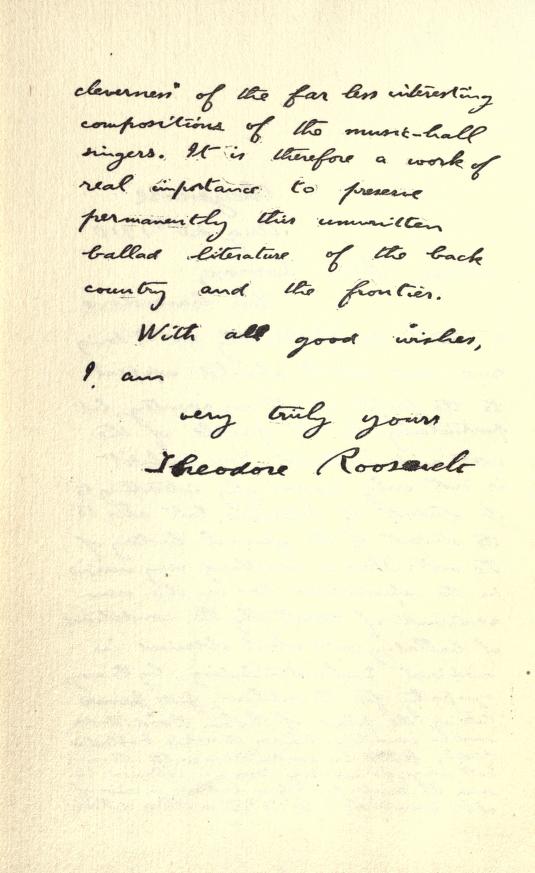
In Lomax’s book, the lyrics to Seeger’s “Whiskey, Rye Whiskey” appear within the song “Jack O’ Diamonds.”
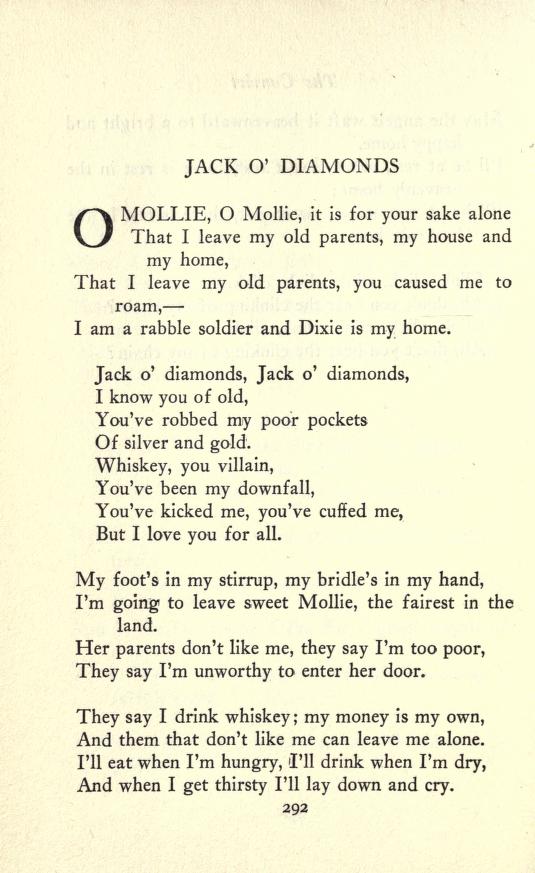
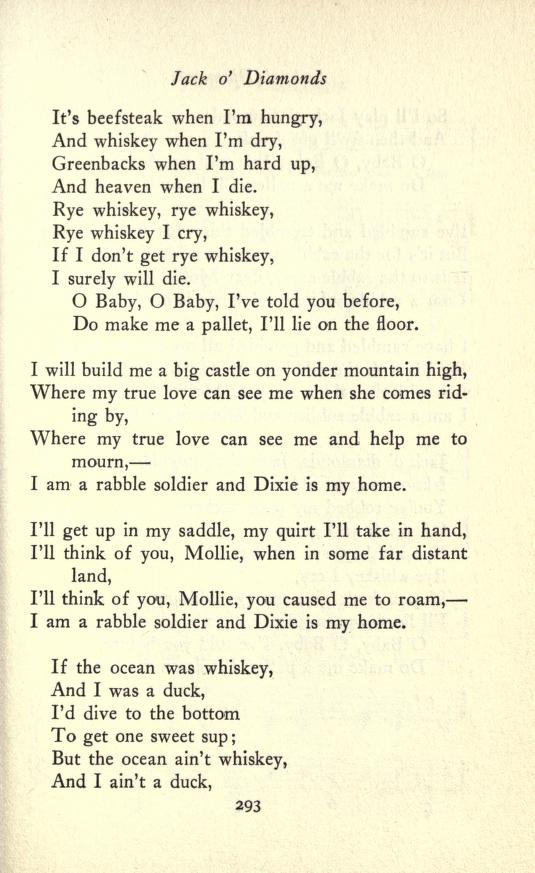
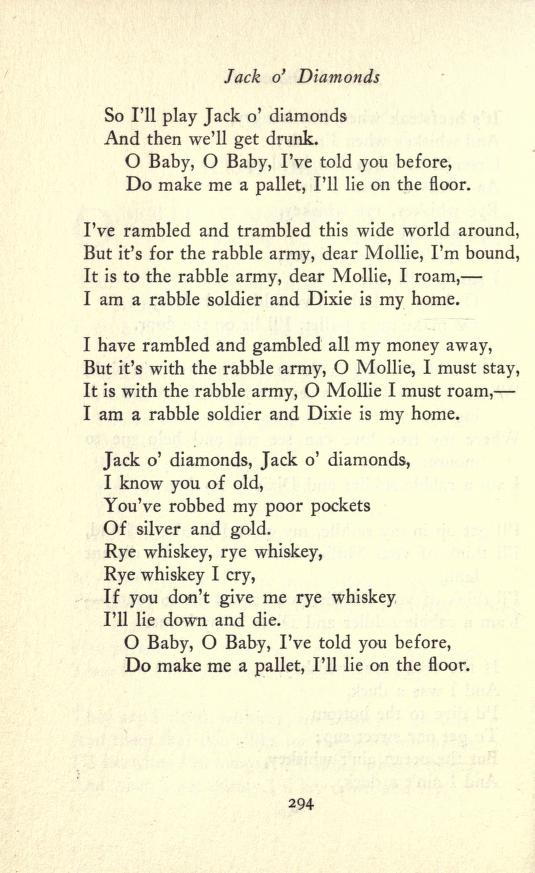
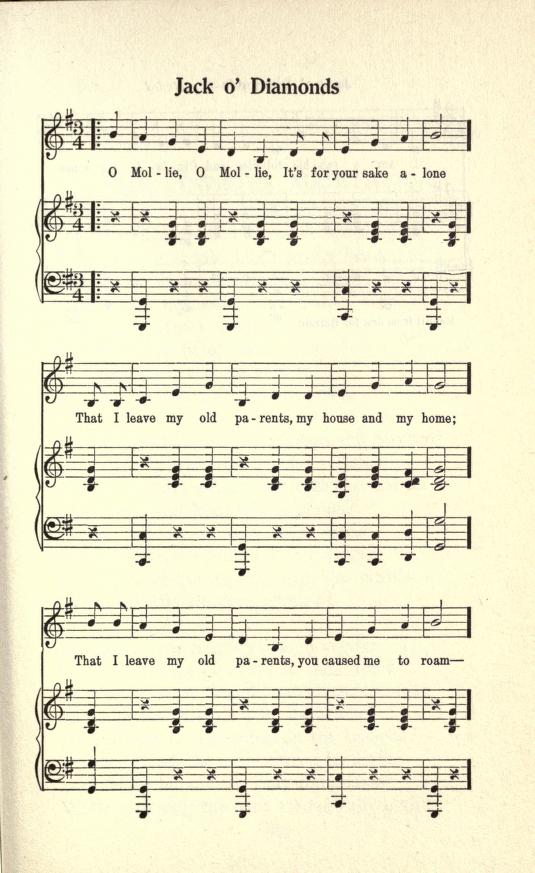
The following clipping was published in the Buffalo Evening News (Buffalo, New York) on December 20, 1934. Note the reference to “Cowboy Songs” as an attribution. It is unclear if the article was specifically pulled from Lomax’s book, but it was surely derived from his or a similar source.

Tracing the origins of a folk song can be difficult. Many versions of Seeger’s song exist, and there are several similar songs that were sung which used the same tune. Most music historians agree that the song’s melody has Scottish origins. While the music almost certainly came from an old Gaelic fiddle tune known as “Robi Donadh Gorrach” (translates to “silly, naughty Robbie” or “daft Robin”), the lyrics are harder to pin down. They almost certainly had their origins in the South, however, and simply morphed over time.
Texan cowboys seem to have borrowed lyrics from Confederate soldiers during the mid-19th century- songs like “The Rebel Soldier”. The first time a similar version of the song appeared in print was in 1874 when “The Rebel Prisoner” was printed in Allan’s Lone Star Ballads. A Collection of Southern Patriotic Songs, Made During Confederate Times, by Francis D. Allan. “The Rebel Prisoner”, seen below, is quite similar to “Jack O’ Diamonds” and one can easily see how the song could have been adapted for use by different musicians.
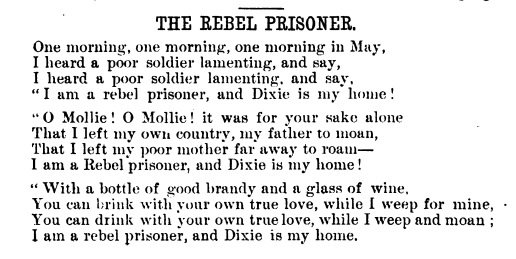
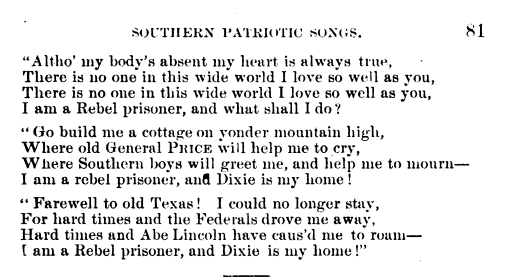
Pete Seeger’s version of the song is quite short compared to its predecessors. The folk singing tradition tends to shorten songs over time as they are sung and re-sung, generation after generation. Many folk musicians were illiterate and/or unable to read sheet music, so songs were cropped and sung from memory. Each time the musical story is retold and taught to the next generation, it becomes slightly different. Every iteration of a folk song becomes as unique as the musician, or in Seeger’s case, the banjo player. Folk songs, like rye whiskeys, are meant to conjure nostalgia and to be shared in good company, preferably with people that like to sing along to a good tune.
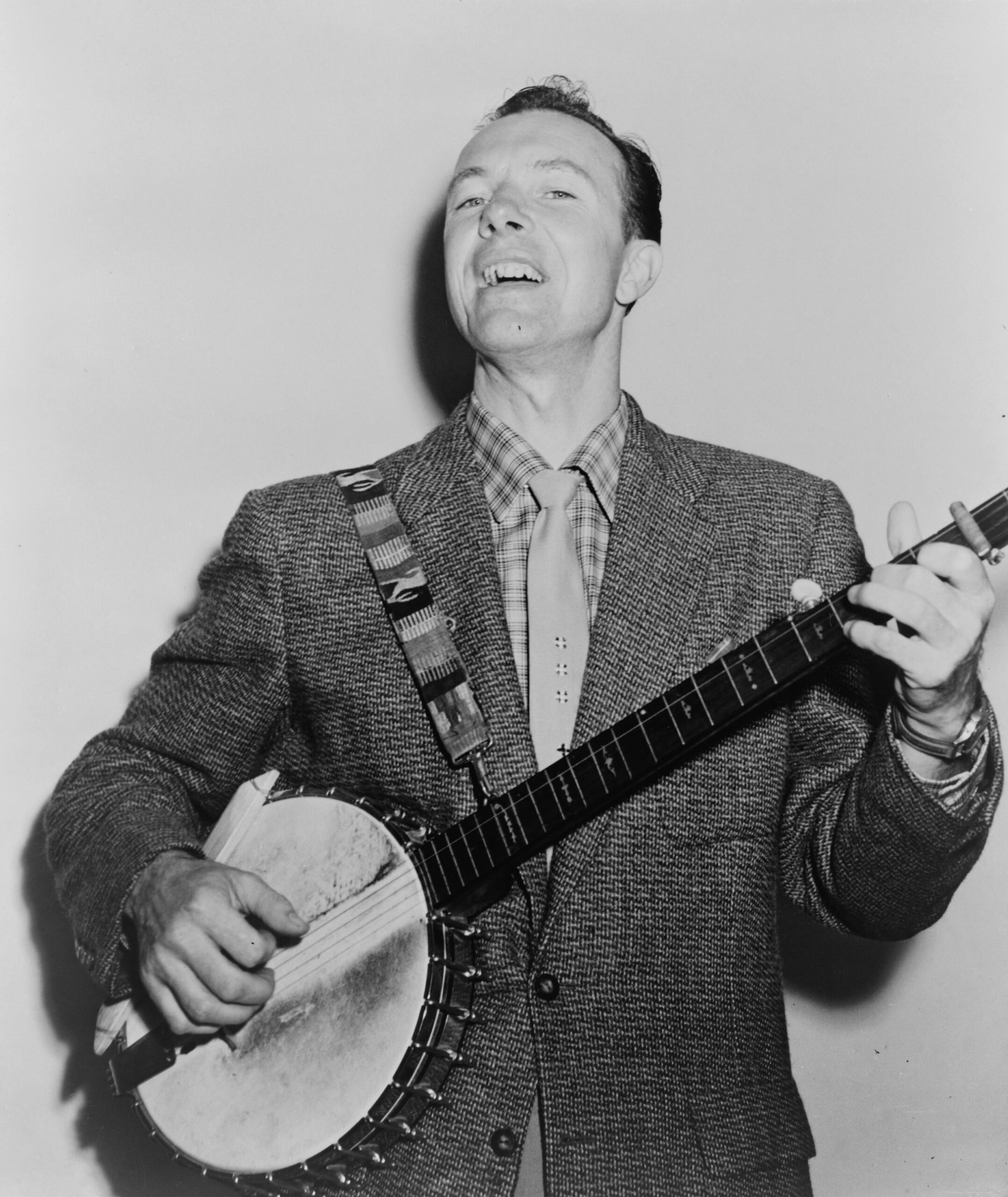
Whiskey, Rye Whiskey
As performed by: Pete Seeger
Rye whisky, rye whisky, rye whisky, l cry
If you don’t give me rye whisky, I surely will die
If the ocean was whisky and I was a duck
I’d dive to the bottom and never come up
Rye whisky, rye whisky, rye whisky, l cry
If you don’t give me rye whisky, I surely will die
Way up on Clinch Mountain*, I wander alone
I’m as drunk as the Devil, just leave me alone
Rye whisky, rye whisky, it’s whisky, l cry
If you don’t give me rye whisky, I surely will die
I’ll eat when I’m hungry, I’ll drink when I’m dry
If a tree don’t fall on me, I’ll live ’til I die
Rye whisky, rye whisky, whisky, l cry
If you don’t give me rye whisky, I surely will die
It’s whisky, rye whisky, rye whisky, l cry
If you don’t give me rye whisky, I surely will die
(*Clinch Mountain is in Tennessee near the borders of Virginia and Kentucky.)

